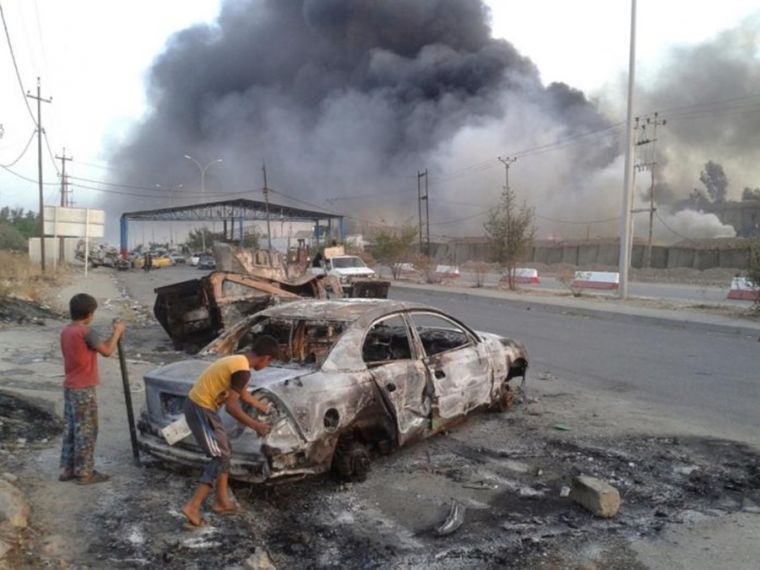ISIS May Use Fire from Oil, Other Mediaeval Strategies to Defend Itself as Colossal Battle for Mosul Looms

The Islamic State (ISIS) is bracing for a colossal battle in Mosul, Iraq's second largest city with a population of over a million people. The city has been under ISIS occupation since June 2014.
In its latest report, the Christian Aid Mission says Christian ministries in the region are preparing themselves for a massive humanitarian crisis that they expect to arise from the battle.
"We believe it's going to happen very soon, because it's already started," a ministry director told Christian Aid Mission, referring to the looming Iraqi army move to begin a major campaign to liberate Mosul.
"It will affect the whole city. Most of them [residents] are going to be driven out, because it's going to be a tough war. There are a lot of ISIS fighters there, and they're preparing," the director said.
To ward off "infidels," ISIS militants are resorting to nefarious, mediaeval strategies, including filling the moats around the city with oil, "which when set on fire would send up clouds of smoke to reduce visibility for attacking bombers," the ministry director reported.
He said men and boys have been coerced to take up arms to reinforce the estimated 3,500 to 5,000 ISIS fighters preparing to defend the city.
Whether or not Iraqi forces succeed in retaking Mosul, the Middle East director of Christian Aid Mission said the Iraqi government expects more than a million people to flee Mosul when the offensive begins.
"The military will help them to flee," the director said. "When the military starts moving in, some people are going to start moving out. The government expects more than a million people to flee during the liberation of Mosul regardless of the results."
He said those who would be evacuating from Mosul are expected to seek refuge in nearby Kurdistan, adding that his group is preparing to help these displaced people physically, emotionally and spiritually.
"The people who flee to Kurdistan will be somebody who's seen their husbands or kids killed or their daughters enslaved," he said. "They will come without supplies and will sleep in the street. They're going to have kids who haven't eaten for days. We need to show them something different from how they lived under Islam."
He said most of the refugees will "either hate religion or be so ready to receive Christ now." That's why they're "praying for that moment to be the first ones to receive them," he added.











